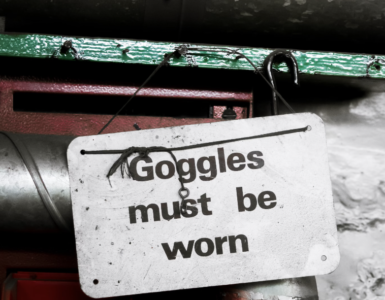Leaks, pollution, and emissions: New lab tests shatter claims of hydrogen benefits for homes – ECOS.
Home gas leaks more than doubled, on average, when best-selling models of cooking hobs were supplied with hydrogen blended with fossil gas under normal household conditions, compared to tests using fossil gas only. The same test on household boilers saw leaks rise by an average of 20%. Have we finally reached the end of the road for the hype of hydrogen in our homes? Read on to find out why hydrogen for domestic use is a dead end.
In the first study of its kind, commissioned by ECOS, an independent laboratory has tested different mixes of fossil gas and hydrogen in domestic boilers and hobs (such as pure methane and a 20% hydrogen/80% methane blend). Further elaborated on in a second independent report, the results should be the final nail in the coffin for hydrogen in homes.
Hydrogen would pose serious health, safety, and climate risks – as well as having enormous infrastructure limitations – if it were to replace fossil gas in our homes. By marketing hydrogen as the environmental remedy to decarbonise gas for domestic heating and cooking, the fossil fuel industry is attempting to lock in fossil gas, securing its own future at the expense of ours.
🔥 What about we co-host a webinar? Let's educate, captivate, and convert the hydrogen economy!
Hydrogen Central is the global go-to online magazine for the hydrogen economy, we can help you host impactful webinars that become a global reference on your topic and are an evergreen source of leads. Click here to request more details
Advertising from the fossil fuel industry includes labelling appliances like boilers and hobs as ‘hydrogen-ready’ to advance the claim that renewable-based hydrogen is a plausible, environmentally sound solution for homes – which it is not. This position is untenable when safety, health, infrastructure, cost, and climate impacts are considered.
Hydrogen in homes: All hype, no substance, tests show
Tests confirm that boilers and hobs experience a dramatic leakage problem when they use blended hydrogen compared to fossil gas – even when hobs are switched off. On average, when fossil gas is blended with 20% hydrogen for cooking on hobs, leaks double. Similarly, for boilers powered by a hydrogen/fossil gas blend, leakage rates were found to be 44% higher.
Like appliances, gas distribution networks are not built to cope with hydrogen. In Spain alone, gas providers estimate that upgrade costs to accommodate a 20% hydrogen blend, including the risk of leaks through cracks and poorly sealed joints, would be over 700 million euros. Then, if hydrogen were able to be fully renewable using electrolysis (which itself is an unrealistic goal), CO2 emissions would only decrease by 7% – a climate benefit that would be wiped out if just 0.3 to 0.7% of the blended hydrogen leaked into the atmosphere because its Global Warming Potential over 20 years is over 30 times higher than CO2.
Compared to better solutions, such as electric heat pumps and induction cooktops, burning mixtures of hydrogen indoors also generates far more dangerous pollutants, including carbon monoxide, nitrogen dioxide, and benzene. The concentration of the latter is equivalent to passive smoking. Having an open flame in your home – be it gas or hydrogen – is also inherently unsafe, compared to renewable solutions that are based on electricity.
On top of all this, despite having the potential to be renewable, hydrogen produced today is almost entirely produced from fossil fuels. In Europe, less than 1% of the hydrogen produced is done so renewably. The small amount of renewable hydrogen available should be used for sectors that cannot be easily decarbonised in other ways, such as heavy industry and aviation.
The real solution: electrification
For many reasons, hydrogen is not the remedy for decarbonising domestic heating and cooking that its advocates claim. We must put this conversation to bed because there is already a clear winner for decarbonising home heating and cooking: renewable electricity. Electrifying how we heat and cook is the cleaner, healthier, and safer alternative to gas. Cooking on an electric induction cooktop is also three to four times more efficient than burning hydrogen.
Electric heat pumps for heating and cooling and induction technologies for cooking are mature technologies that are safer, healthier, and more efficient. They are the only pathway to net zero in Europe by 2050. The time to secure that future is now.
READ the latest news shaping the hydrogen market at Hydrogen Central
Leaks, pollution, and emissions: New lab tests shatter claims of hydrogen benefits for homes – ECOS. source








